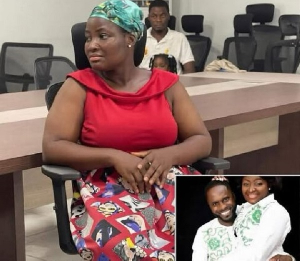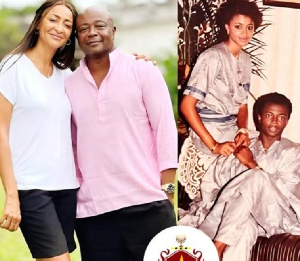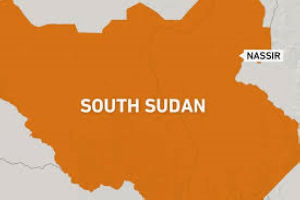By: Otchere Darko
Whether we are referring to the type that results from conquest and annexation by powerful people from distant places, or to the type that results from conquest and annexation by powerful neighbouring ethnic communities, “imperialism” has one good side, which is that, it helps to bind different peoples together to form one “new cultural unit”. Egyptian, Roman and all other older forms of imperialism had this same unifying effect. Modern European imperialism had similar effect in USA, Canada, South America, Australia, etc, even though it did not have such effect in Africa. Also, the indigenous forms of empire-building that were taking place in Africa before Europeans arrived and halted them, were helping to impose dominant cultures on others and unify ethnic groups wherever they occurred. Unfortunately, European imperialism in Africa which halted indigenous African imperialism did not last that long, nor was it overwhelming enough to succeed to annihilate and replace indigenous cultures that existed in Africa before the advent of European influence. *Accordingly, African countries continue to have within them diverse ethnic groups with strong bounds, cultures, sentiments and developments that impact negatively, and act as disintegrating forces.
This negative impact has been undermining national unity and progress in almost every African country, where colonisation brought different ethnic groups together under one single central colonial administration, but failed to coalesce various ethnic groups within it into a homogeneous nation with a unified culture and a population that sees itself as “one people” with “one destiny”. There are two exceptions to this general trend in Africa, in my opinion. The first exception is South Africa where the Apartheid system and White rule indirectly helped to create and heighten a sense of “nationalism” among indigenous South Africans, and resulted in a common fight against that system and its White rulers, thereby helping to weaken or neutralise any ethnic sentiments that might have previously existed among them. The second exception is North Africa, where centuries of Arab influence helped to create a united “Arab culture” that allows citizens of the countries in that region to see themselves as “one people” with one “Arab culture”. These two places aside, the problem of “ethnic suspicion and mistrust” runs through the rest of the continent from Angola to Eritrea, to Ivory Coast, to Kenya, Niger, Nigeria, Rwanda, Senegal, Somalia, Sudan, Uganda, Zimbabwe, etc. Some Ghanaians can choose to see Mills’ “adze wo fi a, oye” rhetoric as an isolated comment from a politician who was capitalising on an old “Fanti adage”. Others can also seize on Nana Akufo-Addo’s recent comment that seemed to be “tribally charged” and argue that “tribalism” is limited to only Nana Addo and his NPP group. But Ghanaians as whole cannot continue to deny the problems posed by our cultural diversity, or continue to sweep them under the carpet. We have ethnic communities in Ghana, in addition to the “State”. *These ethnic communities existed long before the “State”, which was superimposed on them. In my view, removing power from indigenous communities and concentrating it in the “State” through over-centralised Central Government has been the genesis of all ethnically-charged political upheavals in Ghana since administrative power returned to Ghanaians from our colonialists in the 1940s.
Ghana must positively utilise its ethnic diversity by using ethnic communities as “centres and engines of development”; basing that on the right of each community for self-determination, self-development and self-actualisation, as part of an overall national development agenda, and within our same unitary system of government. *This should be done through adequate and proper devolution of power, responsibility and resources to communities to enable them to manage themselves and fulfil their self-actualisation needs, as different groups that cohabit and collaborate with one another within an overall national framework. Ethnocentrism is what is bad and must be discouraged in every way; but ethnicity is part of being Ghanaian, and being human. There is nothing wrong, therefore, if somebody behaves as an “Ashanti” or an “Ewe” or a “Ga”, because he would only be stating a fact of culture and nature. Instead of trying to stop people from being what they were before they became Ghanaians, we must encourage Ghanaians to embrace our ethnic diversity which underlines Ghana’s multiculturism. There is no “Ghanaian culture” that can rightly be described as “national”. Instead, there are several cultures that draw their origins from different ethnic groups in the country, and which are collectively but “deceptively” referred to as “Ghanaian culture”. Can we continue to admire the portrayal abroad of some of the rich aspects of “Akan culture” when we are in the Diaspora, and still call some Akans back home as “tribalistic” when they portray the same aspects of Akan culture at home? Can we defend “Africanism” and yet continue to see Ewes as “tribalistic” and “inward-looking” when they choose to speak their language or defend their “Ewe culture” and its symbolisms? If during important occasions every Ghanaian politician wants to wear either “kente” with “ahenema” or “batakari” with “togas”, both of which are “unique” to specific ethnic groups in Ghana, why should we behave as if Ghanaians of today did not evolve from ethnic groups that still exist and form inseparable part of us? *We can close our eyes in order to see nothing; but we cannot pretend that there is nothing around us, when we close our eyes and see nothing.
Let Ghanaians stop indulging in self-denial. Let us accept that ethnicity is part of Ghana’s geography, psychology and politics. Instead of sweeping it under the carpet, let us embrace our ethnic diversity. Instead of emphasising the negative side of it, let us recognise the positive side and use its potentials to help in Ghana’s development. Let us do this by devolving power, responsibility and resources to local communities that represent our ethnic diversity, to enable them to develop in ways that are in tune with their culture and tradition. That would mean we are “empowering communities to take their lives into their own hands”. That will encourage community development, self-actualisation and the spirit of “live and let’s live”. Devolving power, responsibility and resources to communities will reduce “tribalism” and tribal tension. In fact, devolution will encourage rapport among ethnic groups and bring about national unity. *In order to promote Ghanaian nationalism that is based on multiculturalism, we should create a smaller Central Government that is supported by a bigger Local Government which hinges on ethnic communities that are free from State control. It is this that will help bring an end to the epic ethnic tension, tribalism and tribal hatred that have characterised our national politics since independence.
Source: Otchere Darko; [This writer is a centrist, semi-liberalist, pragmatist, and an advocate for “inter-ethnic cooperation and unity”. He is an anti-corruption campaigner and a community-based development protagonist. He opposes the negative, corrupt, and domineering politics of NDC and NPP and actively campaigns for the development and strengthening of “third parties”. He is against “a two-party only” system of democracy {in Ghana}....... which, in practice, is what we have today.]
Opinions of Sunday, 20 February 2011
Columnist: Otchere Darko














